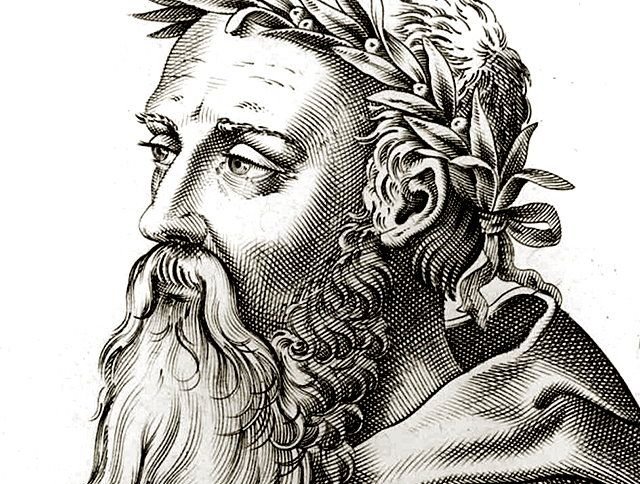Ancient philosophy. Empedocles - one of the most gifted personalities in the history of philosophy. /last part/
In addition, strength and correctness depends on the width of the pores that have the senses. If the pores are very small, the broadcasts of the objects can not enter them. If, on the contrary, they are very large, the radiation passes without being able to cause severe irritation. This is precisely the inconsistency and general uncertainty of sensory knowledge. True knowledge is only achieved through reason and thinking. Do not trust, Empedocles says of the senses, but use reason, then everything will be clear to you. But his mind is not abstract; and he has his seat in the blood and more definitely in the heart. The blood is gifted with thinking ability. In this regard, although Empedocles painted the elements like inert and absolutely dead, there are also opposite speeches, according to which everything is animated and endowed with thought.
Because you know, he said, everything has consciousness and participation in thinking. More interesting are the mystical-religious views of Empedocles, which he dedicated to the end of his life, and which we find expressed in his second essay, "Purification". We see purely his philosophical views expressed in mythological form. Still, there is a purely mechanistic, and we would say, a positivistic view of the world. But as in recent times the founder of positivism Auguste Cont had begun his philosophy of denial of religion and ended with the fact that religion and a rich religious cult as well as Empedocles, without denying religion, began with mechanistic and ended with mystical perceptions of the world and man. According to him there are gods in blissful condition. Because of the offense some of them have dropped out and are doomed to wanderings for 30,000 years. These fallen gods are the people. They redeem their sins through constant dying and ever-new incarnations. None of the four elements tolerate them and throw them away. So they wander everywhere from anyone not accepted, of all hated, and reborn to fish and birds, animals and humans. For himself, Empedocles says that he is also a fallen, unpunished, foolish God. He was already a fish, a bird, a bush, a boy and a girl. The only salvation of this miserable state is that a number of religious rituals, spells, and sweats that purify the soul are performed. Moral effort is also needed.
In the first place, neither man nor animal must ever be killed, as reborn gods live in them. You should not eat meat and food from exciting legumes. No injustice must be done to others. Only so will people be able to rebirth in ever-higher men: they will become prophets, poets, doctors, and princes until they finally become again "gods of great honor, accomplices in the outcry of other gods and their companions free of all human pains, careless and indestructible to fate. " Nevertheless, Emledocles' second book, as a work of an exile, is rather pessimistic. It does not lack places where the author portrays himself as being deified again among the people, spreading everywhere benefits to the sufferers to whom the earthly elements obey, and which therefore enjoys universal respect and honor, bordering on charity. It is assumed that in his religious-mystical perceptions Empedocles are influenced by the teachings of orphans, and especially by the Pythagoreans. He has not attempted to reconcile his natural-scientific and philosophical views with the religious ones, for the ancient man has never even had such contradictions as some find today.
